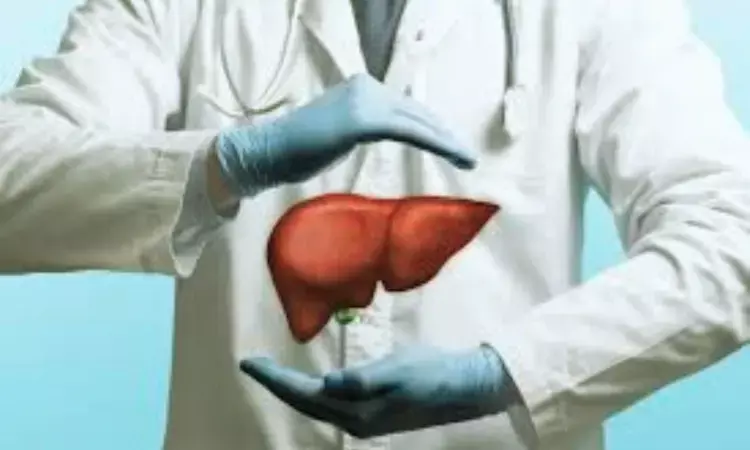- Home
- Medical news & Guidelines
- Anesthesiology
- Cardiology and CTVS
- Critical Care
- Dentistry
- Dermatology
- Diabetes and Endocrinology
- ENT
- Gastroenterology
- Medicine
- Nephrology
- Neurology
- Obstretics-Gynaecology
- Oncology
- Ophthalmology
- Orthopaedics
- Pediatrics-Neonatology
- Psychiatry
- Pulmonology
- Radiology
- Surgery
- Urology
- Laboratory Medicine
- Diet
- Nursing
- Paramedical
- Physiotherapy
- Health news
- Fact Check
- Bone Health Fact Check
- Brain Health Fact Check
- Cancer Related Fact Check
- Child Care Fact Check
- Dental and oral health fact check
- Diabetes and metabolic health fact check
- Diet and Nutrition Fact Check
- Eye and ENT Care Fact Check
- Fitness fact check
- Gut health fact check
- Heart health fact check
- Kidney health fact check
- Medical education fact check
- Men's health fact check
- Respiratory fact check
- Skin and hair care fact check
- Vaccine and Immunization fact check
- Women's health fact check
- AYUSH
- State News
- Andaman and Nicobar Islands
- Andhra Pradesh
- Arunachal Pradesh
- Assam
- Bihar
- Chandigarh
- Chattisgarh
- Dadra and Nagar Haveli
- Daman and Diu
- Delhi
- Goa
- Gujarat
- Haryana
- Himachal Pradesh
- Jammu & Kashmir
- Jharkhand
- Karnataka
- Kerala
- Ladakh
- Lakshadweep
- Madhya Pradesh
- Maharashtra
- Manipur
- Meghalaya
- Mizoram
- Nagaland
- Odisha
- Puducherry
- Punjab
- Rajasthan
- Sikkim
- Tamil Nadu
- Telangana
- Tripura
- Uttar Pradesh
- Uttrakhand
- West Bengal
- Medical Education
- Industry
Liver transplantation: Normothermic regional perfusion tied to better DCD liver allograft outcome, study reveals

USA: A recent study published in JAMA Surgery reports US liver transplant outcomes after normothermic regional perfusion (NRP) versus standard super rapid recovery.
The findings suggest that NRP improves controlled donation after circulatory death (DCD) liver allograft outcomes and holds the potential to increase DCD organ use.
"The multicenter cohort study comprisng136 livers recovered with super rapid recovery (SRR) and 106 livers recovered with NRP showed comparable patient and graft survival in liver transplant recipients of DCD donors recovered by NRP versus SRR, with reduced ischemic cholangiopathy rates in NRP recipients," the researchers reported.
Normothermic regional perfusion is an emerging recovery modality for transplantable allografts from controlled donation after circulatory death (cDCD) donors. In the US, only 11.4% of liver recipients transplanted from a deceased donor receive a cDCD liver.
NRP holds the potential to safely expand the US donor pool with improved transplant outcomes versus standard super rapid recovery. Considering this, Aleah L. Brubaker, University of California San Diego, La Jolla, California, and colleagues aimed to assess outcomes of US liver transplants using controlled donation after circulatory death livers recovered with NRP versus standard SRR.
For this purpose, the researchers conducted a retrospective, observational cohort study to compare liver transplant outcomes from cDCD donors recovered by NRP versus SRR. They collated outcomes of cDCD liver transplants from 2017 to 2023 from 17 US transplant centers. The livers recovered by SRR and NRP (thoracoabdominal NRP [TA-NRP] and abdominal NRP [A-NRP]) were included.
Seven transplant centers used NRP, allowing liver allografts to be transplanted at 17 centers; 10 centers imported livers recovered via NRP from other centers.
The study's primary outcome was ischemic cholangiopathy (IC). Secondary endpoints were early allograft dysfunction (EAD), primary nonfunction (PNF), posttransplant length of stay (LOS), biliary anastomotic strictures, and patient and graft survival.
The study included 242 cDCD livers: 136 recovered by SRR and 106 recovered by NRP (TA-NRP, 79 and A-NRP, 27). Median NRP and SRR donor age was 30.5 years and 36 years, respectively.
The findings of the study were as follows:
- Median (IQR) posttransplant LOS was significantly shorter in the NRP cohort (7 days vs 10 days).
- PNF occurred only in the SRR allografts group (n = 2). EAD was more common in the SRR cohort (56.1% versus 36.4%).
- Biliary anastomotic strictures were increased 2.8-fold in SRR recipients (6.7% vs 22.4%).
- Only SRR recipients had IC (9.0%); IC-free survival by Kaplan-Meier was significantly improved in NRP recipients.
- Patient and graft survival were comparable between cohorts.
In conclusion, there was comparable patient and graft survival in liver transplant recipients of cDCD donors recovered by NRP vs SRR, with reduced rates of IC, EAD, and biliary complications in NRP recipients.
The feasibility of TA-NRP and A-NRP implementation across multiple US transplant centers supports increasing NRP adoption to improve organ use, risk of wait-list mortality, and access to transplants.
Reference:
Brubaker AL, Sellers MT, Abt PL, et al. US Liver Transplant Outcomes After Normothermic Regional Perfusion vs Standard Super Rapid Recovery. JAMA Surg. Published online April 03, 2024. doi:10.1001/jamasurg.2024.0520
Dr Kamal Kant Kohli-MBBS, DTCD- a chest specialist with more than 30 years of practice and a flair for writing clinical articles, Dr Kamal Kant Kohli joined Medical Dialogues as a Chief Editor of Medical News. Besides writing articles, as an editor, he proofreads and verifies all the medical content published on Medical Dialogues including those coming from journals, studies,medical conferences,guidelines etc. Email: drkohli@medicaldialogues.in. Contact no. 011-43720751


